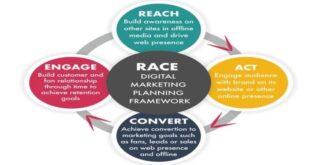 By Aishah Schwartz
By Aishah Schwartz
CAIRO – A recent report by Euromonitor International reviewing halal product markets suggests that investing in existing local brands or in cooperation with a Muslim fashion designer to create a new label, has the potential to produce nearly double-digit annual growth of the Islamic fashion clothing industry.
"However, creating a new brand requires solid research in local markets and financial resources to develop a manufacturing process and a supply chain that can guarantee compliance with widely accepted halal standards," stated Euromonitor International research analyst Natalia Gorzawski.
Gorzawski further stated: "To exploit the full potential of this underserved consumer segment, particularly in developing countries, manufacturers will need to create an affordable clothing line that can serve the demand of the mass market and not just a small minority of upscale consumers."
According to Euromonitor's estimates, Organization of Islamic Cooperation (OIC) countries accounted for 7.9 percent of the fashion market in 2014, and incremental increases of 8.1 percent in 2015, 8.4 percent in 2016, 8.8 percent in 2017, and up to 9.1 percent in 2018 are anticipated.
"With the tremendous potential Islamic fashion offers in the future, it would be foolish to overlook its long-term potential," stated Gorzawski.
"In fact, in 2013, the 57 countries that belong to the OIC accounted for 7 percent of [the] total value of sales of apparel and footwear.
"With approximately two billion Muslims in the world, accounting for nearly 30 percent of the global population, it is a target audience that should not be [taken] lightly," she added.
Additionally, the Thomson Reuters Islamic Finance Gateway arm – in collaboration with Dinar Standard – in its publication, “State of the Global Islamic Economy,” sets out that collectively, it is estimated the Muslim consumer and lifestyle sectors were worth $1.6 trillion dollars in 2012, with growth of those markets expected to reach $2.47 trillion dollars by 2018.
Pointing out that rapid urbanization of many Muslim dominated countries has brought with it an expansion in product portfolios and retail options showcasing global fashion trends, Gorzawski adds: "There has been a desire amongst Muslim women to see clothing that acknowledges those more modern fashion styles, but is respectful to Islamic tradition."
According to Gorzawski, with product lines designed to cater to specific local tastes, and companies being unable to successfully service international consumers, the rising interest in Islamic fashion is currently outpacing supply, resulting in frustration for Muslim apparel consumers.
Regardless of where she lives, "the modern Muslim woman wants to wear clothing with similar prints, materials and accessories as their U.S. and Western European [counterparts]," stated Gorzawski.
Ethics and Investing in Local Start-Ups
 While acknowledging that Islamic fashion apparel offers a huge opportunity globally, Gorzawski also emphasized that, "local start-ups will struggle to adapt to an international focus or to meet the competition with attractively priced products. Moreover, international companies may often lack the expertise and specific knowledge of Muslim traditions to properly cater to this audience."
While acknowledging that Islamic fashion apparel offers a huge opportunity globally, Gorzawski also emphasized that, "local start-ups will struggle to adapt to an international focus or to meet the competition with attractively priced products. Moreover, international companies may often lack the expertise and specific knowledge of Muslim traditions to properly cater to this audience."
She further added that the 2014 launch of DKNY's Ramadan collection was deemed as the first successful initiative by a multinational company tapping into this potentially lucrative market.
With the expectation that other multinational companies will follow suit in the coming years, a primary concern is that Muslim consumers will require those companies to have a strong halal, ethical focus.
Fashion has always been a means of expression. The products consumers choose and the brands they select ultimately reflect their attachment to a particular group with a similar mindset, values and social status.
Muslim women are no exception when choosing fashion styles. And although traditions and cultural preferences may vary, there is still an adherence to traditional Islamic values that promote modesty amongst women.
According to the Euromonitor International report, in developed countries, where the availability of even more traditional clothing lines for Muslims is limited, small start-ups catering to this consumer segment are reporting a tremendous success.
Muslim fashion designer, Sally Epps, founder of Calyx Fashion in Ashford, Kent, England, aspires for her fashion start-up to be seen as among those blazing a trail in the Muslim fashion industry.
"We want women to feel confident in knowing that they can keep up with fashion trends while concurrently being respectively "covered," she states on the Calyx Fashion website.
As a fashion designer who hand selects all textiles and trims for the Calyx Fashion collection, Epps seeks to meet the needs of women from all walks of life; be they mothers, students, business women, or even in worship.
Included in the made in Turkey fashion collection are items designed with sleeves that easily roll-up past the elbows – in order to readily perform the religious ritual of ablution for Muslim prayers – front-opening garments for nursing mothers; in addition to classical casual, business professional, and special occasion designs, constructed from fabrics chosen for ease of care and comfort.
Epps also states that Calyx Fashion strives to adhere to Islamic concepts of fair and ethical business practices.
As further stated on the company's website, Epps adds: "We neither employ nor deal with any businesses or manufacturers employing child-laborers or participating in any other type of exploitation. All workers involved in the manufacturing – and all other processes – of Calyx Fashion receive a fair living-wage."
Calyx Fashion also avoids interest-based financing and sets aside a reasonable percentage of its profits for charity, in addition to donating garments for charitable fund-raising events.
The internet makes it possible for start-up companies focused on capturing a part of the global Muslim market to emerge, and an ever increasing number of companies are attempting to make their mark in the fashion industry; including Calyx Fashion.
Calyx Fashion also offers wholesale and/or franchising opportunities.
The Muslim religion is the second largest and fastest growing religion in the world, with Muslim consumers expected to reach 26 percent of the global population by 2030.
Source : http://www.onislam.net
Post Disclaimer | Support Us
Support Us
The sailanmuslim.com web site entirely supported by individual donors and well wishers. If you regularly visit this site and wish to show your appreciation, or if you wish to see further development of sailanmuslim.com, please donate us
IMPORTANT : All content hosted on sailanmuslim.com is solely for non-commercial purposes and with the permission of original copyright holders. Any other use of the hosted content, such as for financial gain, requires express approval from the copyright owners.
 Sri lanka Muslims Web Portal Sri Lanka Muslims News Center
Sri lanka Muslims Web Portal Sri Lanka Muslims News Center
 Donate
Donate


